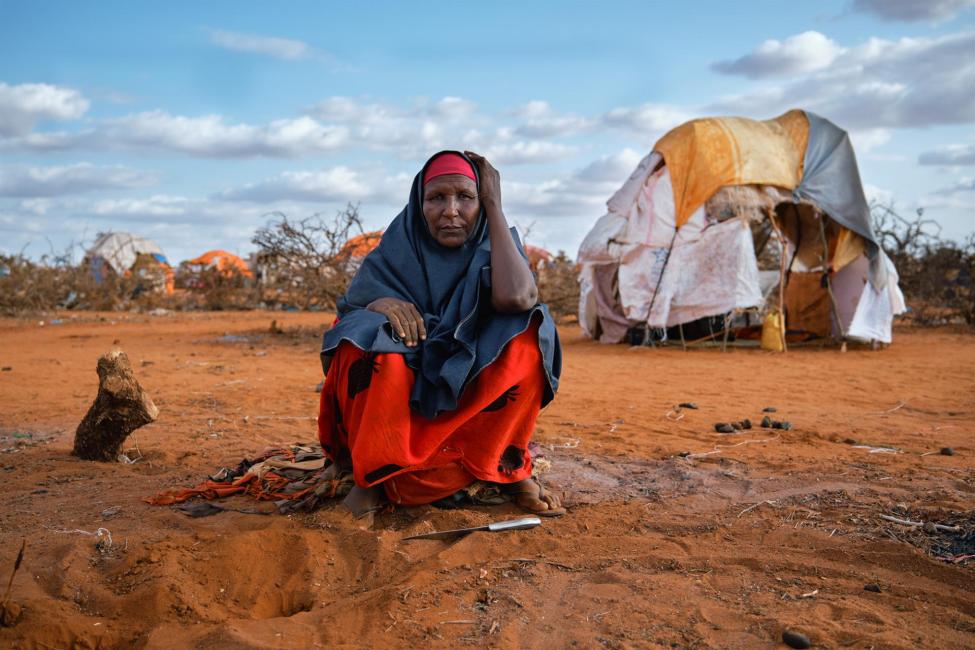Mogadishu (Caasimada Online) – Somalia, a country already struggling with years of conflict and natural disasters, is facing another crisis as the number of people displaced reaches an all-time high of 3.8 million.
The International Organization for Migration (IOM) is calling for immediate action to prevent further displacement and to address the dire living conditions of the millions affected by drought and conflict.
Ugochi Daniels, the IOM’s Deputy Director General for Operations, emphasizes the need for donor investments in sustainable solutions.
The convergence of climate risks and conflict is exacerbating the situation following five consecutive below-average rainy seasons, with a projected sixth expected in early 2023.
Tens of thousands of people may be forced to seek refuge in major cities and towns, particularly in Baidoa and Mogadishu. The IOM predicts that approximately 300,000 people could be newly displaced by July 2023.
The situation is dire for those affected, as many may never return to their places of origin due to land depletion and insecurity. Families are being born and raised in informal settlements with unsuitable living conditions.
Daniels warns that urgent action is needed to prevent further displacement and address the growing needs of the affected population.

Investing in sustainable solutions in Somalia
Daniels stresses the need to invest in the places of origin to prevent further displacement.
“Addressing essential services, social cohesion, stability, governance, justice systems, and climate change adaptation is crucial, bringing communities together with their government and diaspora,” he stressed.
“These building blocks lay the foundation for a pathway for sustainable solutions.”
According to Daniels, IOM projects aim to improve access to land and long-term housing, social services, and inclusive planning processes with local authorities and communities, laying the foundation for long-term development planning.
In areas impacted by violence and conflict, IOM has promoted women-led justice systems, trained communities to manage natural resources more sustainably, rehabilitated schools and boreholes, and built more robust governance systems, such as in Marka, a historical enclave in southern Somalia characterized by conflict.
Positive developments
Daniels commended the incredible work done by women, children, community leaders, and local authorities in Baidoa and Marka to build social cohesion in their communities and take ownership of their future for health, education, and livelihoods.
“IOM is proud to have partnered with them on their journey, he said.
The potential of Somalia’s vibrant diaspora is also crucial in achieving sustainable development goals for the people of Somalia. National policy initiatives to maximize their sustained engagement are needed.
The situation in Somalia demands urgent action to prevent further displacement and address the growing needs of the affected population.
Investing in sustainable solutions is critical to achieving long-term development goals.
The IOM is committed to working with local authorities, communities, and the diaspora to build social cohesion, improve basic services, and promote sustainable development for the people of Somalia. The time for action is now.



